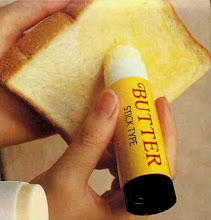Babka, which means grandmother in Polish, is a coffee cake that is traditionally baked for Easter. Babka's are made in molds, typically, from yeast dough and contain raisins and/or currants. They are topped with a sugar syrup and flavored with rum. The rum adds a bit of moisture, but Babka is a relatively dry coffee cake . . . hence the need to have coffee with it.
There is a legend that Polish King Stanislas Leszczynska (1710–1774), the father-in-law of King Louis XV of France, was deposed and exiled to Lorraine, where he found the traditional kouglhopf too dry, so like any good Pole, he dipped it in rum. Evidently he was out of vodka. His chef refined the recipe, using brioche dough and raisins. The king, pleased with the results named it Baba, after Ali Baba, a hero in the book A Thousand and One Nights. Somewhere, along the way, the name was changed to Babka. My guess is because "baba" is an unkind word for a woman. Sort of like "bag," as in "the old bag." Babka, on the other hand, references the person who in many families was likely the one who most often made the cake. The photo above is a typical Babka, although it appears that it’s not soaked with rum. I remember, as a kid, enjoying the inside of the Babka because it was soaked with rum.
I came across the sheet of paper below while searching for another recipe. It's my mother handwriting and contains two recipes for Babka. The other recipes appear to be cookie recipes.
1/8 kg. flour
8 egg yolks
10 dkg. sugar
4 dkg. yeast
1/4 liter milk (whole, I'm sure)
1/16 liter clarified butter
pinch of salt
These are the ingredients for the first recipe, but she did not include any instructions what to do with them! I will have to ask and update this posting later. Meanwhile, I think I will have some rum . . .






No comments:
Post a Comment